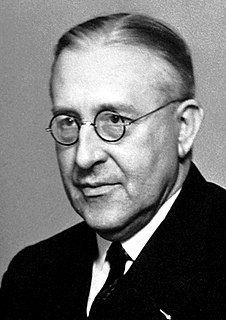A Quote by William Happer
I am not a climatologist, but I don't think any of the other witnesses are either. I do work in the related field of atomic, molecular and optical physics. I have spent my professional life studying the interactions of visible and infrared radiation with gases - one of the main physical phenomena behind the greenhouse effect. I have published over 200 papers in peer reviewed scientific journals.
Quote Topics
Related Quotes
Everything we know about the universe is studied by using telescopes or other instruments that look at visible light, infrared, ultraviolet or X-ray - different wavelengths of electromagnetic interactions. Only 4 percent of what's in the universe gives off electromagnetic radiation, so we don't have any handle on the rest.
In thermodynamics as well as in other branches of molecular physics , the laws of phenomena have to a certain extent been anticipated, and their investigation facilitated, by the aid of hypotheses as to occult molecular structures and motions with which such phenomena are assumed to be connected. The hypothesis which has answered that purpose in the case of thermodynamics, is called that of "molecular vortices," or otherwise, the "centrifugal theory of elasticity.
... the consensus of the scientific community has shifted from skepticism to near-unanimous acceptance of the evidence of an artificial greenhouse effect. Second, while artificial climate change may have some beneficial effects, the odds are we're not going to like it. Third, reducing emissions of greenhouse gases may turn out to be much more practical and affordable than currently assumed.
Are global temperatures rising? Surely, they were rising from the late 1970s to 1998, but 'there has been no net global warming since 1998.' Indeed, the more recent numbers show that there is now evidence of significant cooling [...] Mankind is responsible for just a fraction of one percent of the effect from greenhouse gases, and greenhouse gases are not responsible for most of what causes warming (e.g., the Sun).
But like all power, there are those who want to keep it for themselves. The world's entire scientific and cultural heritage, published over centuries in books and journals, is increasingly being digitized and locked up by a handful of private corporations. Want to read the papers featuring the most famous results of the sciences? You'll need to send enormous amounts to publishers like Reed Elsevier.




































